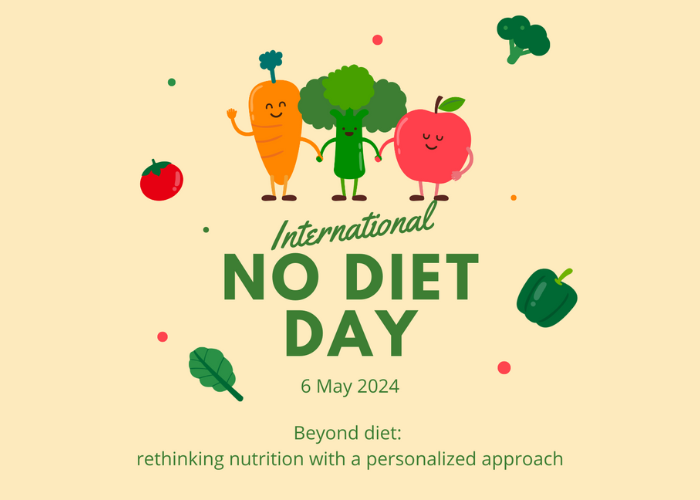Beyond diet: rethinking nutrition with a personalized approachBY PIETRO PAGANINI
- 7 May 2024
- Posted by: Competere
- Category: Senza categoria

Yesterday, we celebrated World No Diet Day, an invitation to reflection rather than a provocation. We should interpret it as a stimulus to develop critical thinking in citizens, consumers, nutrition scientists, dietitians, and all stakeholders in the debate, including politicians and regulatory institutions.
The obsession with food is increasingly fueled by the media and commercial interests, pushing us to try to lose weight or achieve an ideal physical shape to escape the stigma of obesity or overweight, or to conform to models and categories promoted by (social) media for predominantly commercial but also political interests. This compulsive search often leads us to adopt dietary regimes that, while partially based on scientific principles, may penalize essential nutrients for our health.
LABELS AND STICKERS: THE DANGER OF THE “ONE SIZE FITS ALL” APPROACH
Labels such as “fat-free“,”sugar-free”, “cholesterol-free”, “palm oil-free”, or the use of evaluative systems to indicate what is good or harmful, such as the colored stickers of Nutriscore, are political and commercial tools that, if misunderstood, can cause unintended consequences such as physical and psychological harm. These slogans and political tools that ignore who we truly are but follow an economic and political model of “one size fits all” can generate eating and behavioral disorders, triggering a difficult-to-break vicious cycle, with social and economic consequences as well.
BEYOND DIET: A BALANCED LIFESTYLE
The concept of “diet” extends far beyond mere dietary regimen. We should rediscover the ancient Greek definition of “diet” as a balanced lifestyle. The variables to consider, individually since we are all different, include: nutrition, which is not limited to the nutrients consumed but also to how much, how, and when we eat; overall lifestyle, which goes beyond physical exercise and calorie expenditure and can include various factors such as sleep, screen time, posture, and other aspects; our psychosocial state. These variables are interconnected and mutually influence each other. There is also a constant factor that we cannot change yet, but we can certainly learn to understand.
Our genetics play an important role, but we can influence our health with conscious and informed choices. We must urgently address the obesity epidemic, which threatens to shorten our life expectancy for the first time in history.
REDISCOVERING THE MEDITERRANEAN DIET FOR PERSONAL BALANCE
The Mediterranean Diet represents an essential pillar that we cannot overlook today. It is more than just a set of dietary rules; it is rather a method to learn, transmitted through traditions and constantly evolving with new knowledge.
This approach proposes a lifestyle balance, a unique equilibrium that each person builds over time, understanding oneself and one’s way of living. So far, this balance has been maintained almost instinctively through traditional practices. However, in an era characterized by caloric abundance and obesity prevalence, we must consciously adopt the Mediterranean Diet method and create a personalized balance in our lifestyle. This is the true essence of personalized dieting: surpassing commercial trends and political directives to develop an individual approach that adapts to our ever-changing needs.
On this World No Diet Day, it is essential to overcome fears and anxieties induced by commercial models and restrictive dietary policies. We must invest in education and scientific information to make conscious choices that allow us to live better and longer.
